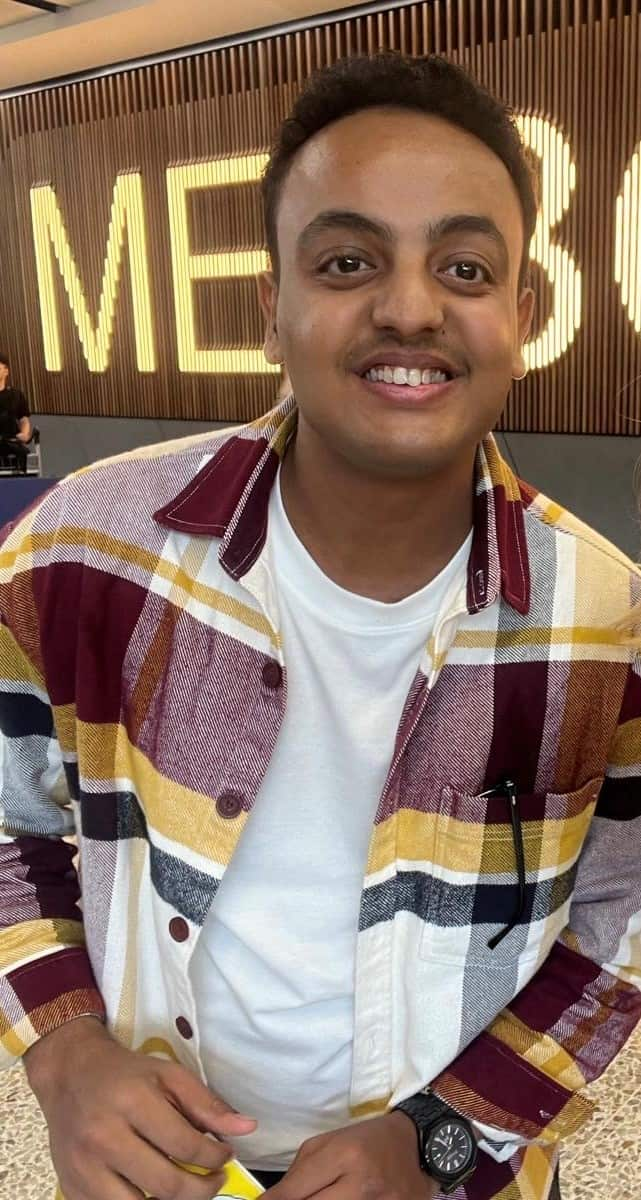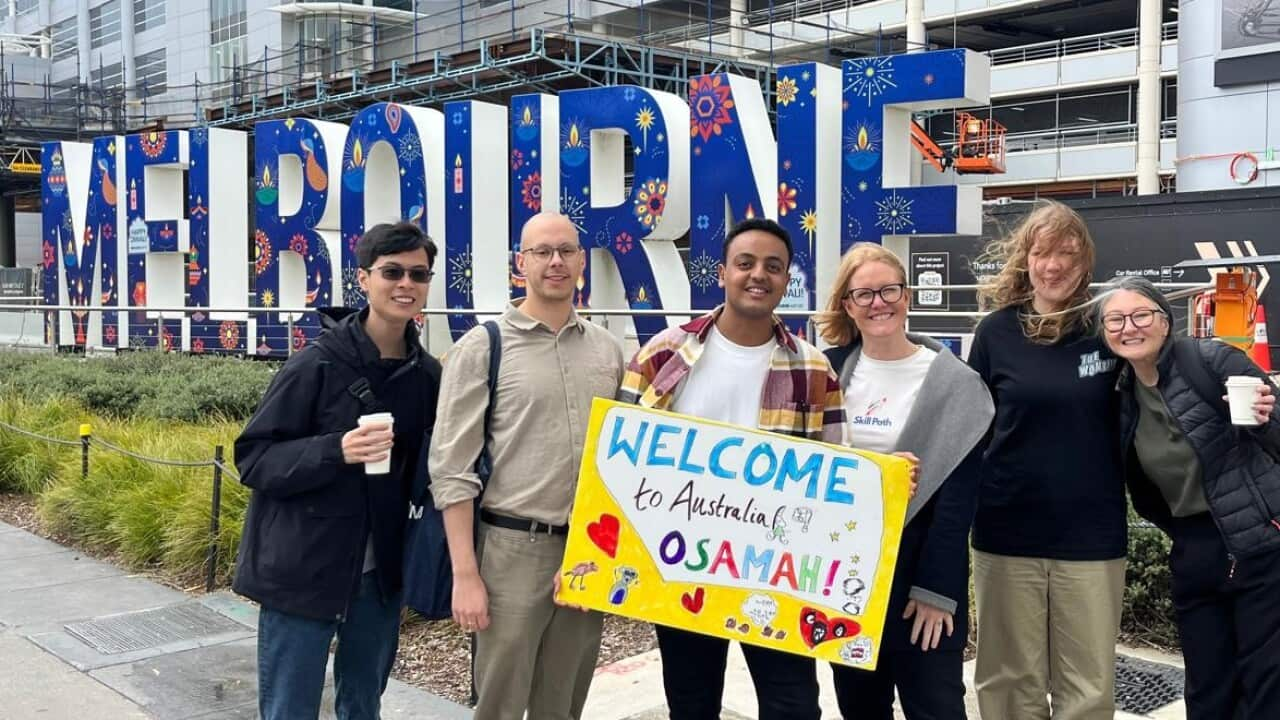Key Points
- The program, open to refugees aged 18-30, provides a permanent visa for those chosen to take part.
- It allows refugees to pursue qualifications in nursing, civil engineering, technology, business or economics.
- The pathway is running as a pilot program with 20 participants in 2026.
For much of his 24 years of life, Osamah has felt his life has been "on hold".
Osamah and his family fled Yemen in 2017, due to the war that broke out over a decade ago and has displaced more than 2.5 million people.
"The necessities to live were absent since the war started, there was no running water, no electricity," he said.
"We lived in the capital, and when the Houthis took over, we had to first move to another city, and then we had to move to a third city, but my parents decided it was no longer safe for us due to many reasons and we had to flee Yemen.
"The only option we had was Malaysia," Osamah said.

Having arrived in Malaysia as a 16-year-old with his parents and his three older brothers, the family had lived with a sense of uncertainty since then.
As a refugee, he and his family stayed in their temporary home of Malaysia on what he said was similar to a tourist visa.
There was a sense of limbo around their everyday lives.
"Since there is no such thing as refugee status in Malaysia, you can sign up to be a refugee with UNHCR, but you don't really have any rights in Malaysia, you cannot work, you cannot study in public or private schools, you cannot have a normal life, you cannot even leave Malaysia, if you leave as a refugee you will most probably be blacklisted, you cannot come back."
Osamah said his family could not return to Yemen, but were also "without a final destination where they could settle."
While he was lucky to have the financial support from another family member for him to eventually go to university and study Biotechnology, being unable to officially get a job in Malaysia meant he was not able to put his degree to use.
His fellow Universiti Malaya alumni moved out into the workforce, but that was never an option for the Yemen-born student.
"I couldn't really go on with my life, everything was on hold, but now I know that I have an opportunity," Osamah said.
"I know if I put in the work, then I will get back the effort."
"We left Yemen looking for a better place, a place that we can call home, and Australia is now that place," Osamah said.
A new settlement pathway has made a sense of opportunity feel possible for the young man, who arrived in Melbourne on Monday.
Osamah is the first of 20 refugees due to come to Australia as part of a pilot program designed to give young refugee students the opportunity to migrate to Australia.
The Refugee Student Settlement Pathway (RSSP) has been designed to create a permanent, complementary pathway for refugees aged 18-30 to take up tertiary education opportunities in Australia and eventually settle here.
While his family members remain in Malaysia, he said they were happy for him to be able to achieve his dreams.
Osamah is due to begin studying for a Master of Biotechnology at the University of Melbourne as of semester 1, 2026.
As part of the program, which its architects say has a community focus, a group of University of Melbourne students met Osamah at the airport when he arrived.
Osamah said had received a very warm welcome not only at the airport, but also by his host family and was looking forward to settling into life in Melbourne.
He said he got into biotech because of the "huge potential it has to change lives".
Osamah wants to one day contribute to the future of medicine.
"I’m really interested in genetic engineering and gene therapy, it’s interesting, in its potential to be used to cure diseases that we thought for long were incurable and even more interesting is that we can actually prevent them from happening."
A new pathway for refugees
The RSSP provides participants with Special Humanitarian Visas, so they can settle in Australia permanently.
The visa class was listed in Australia’s Humanitarian Program 2025-26 Discussion Paper and the participants are part of Australia’s existing Humanitarian Program allocation of 20,000 people for 2024-25.
"The pilot proposes to test a new community sponsorship model that empowers non-traditional actors in refugee protection, including universities, to play an active role in the settlement of young refugees who can pursue their education in safety at Australian universities and make long-term contributions to the Australian community and economy," the discussion paper noted.
Refugees registered with the UNHCR who fit the age criteria and were eligible to undertake qualifications in fields such as nursing, civil engineering, technology, business or economics, were able to apply as part of the initial cohort.
Those chosen had been living in Malaysia, India or Thailand.
How the pathway operates
The founders of two not-for-profits, Sally Baker, of Refugee Education Australia and Steph Cousins, of Skill Path, successfully pitched the concept of the RSSP to the Australian government.
Cousins told SBS News that Skill Path selected the students and matched them with universities.
"We have, in partnership with the Australian government created a pilot refugee student pathway and this uses standard refugee visas.
"But it allows us to select really promising students who are in a refugee situation abroad, they're stuck, they're not able to continue their studies or settle where they are and they can't go home and they need a solution," she said.
"We're able to match them to universities in Australia, bring them to Australia on a permanent refugee visa and then they can study as a domestic student and stay here permanently."
Cousins said the pilot focused on identifying students to undertake degrees that would lead them into an occupation that is in shortage in Australia.
Australia is not the first to create such an opportunity for refugees, with the new pathway having been inspired by Canada’s Student Refugee Program.
Cousins said the program delivered by World University Services Canada had provided "a wealth of knowledge" to inform the creation of RSSP, including around supports put in place for the refugee participants.
"Importantly, when they get here, they're welcomed by the university, which provides some support and also by a student welcome group, so that's volunteers on campus, either students or staff or alumni who provide some orientation support and help the student to settle into Australia," she said.
She said the program is "very much community-led".
Future of the pathway
Former deputy secretary of the immigration department Abul Rizvi said given those offered places in the pilot program had been based in refugee transit countries, "I imagine that acts as method of reducing the incentive of [refugees in those countries] getting on boats [to Australia."
He supported such initiatives but said it would be important that the participants were given adequate support in terms of "English language, employment support and adequate other supports to prevent their exploitation."
When asked about the pilot program, Home Affairs Minister Tony Burke told SBS News, "We’re a good country, and for these students this opportunity will be transformative."
The government's discussion paper on its humanitarian program stated "future intakes under the pilot will be considered by the government each year until enough evidence has been gathered to consider whether the program could be made permanent."

